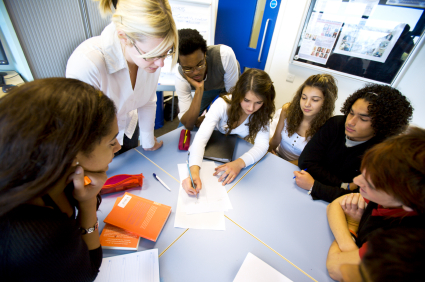
An education charity has shared guidance on how parents, teachers and guardians can explain COVID-19 to children to help reduce anxiety.
Social media and rolling 24hr news channels means it’s unlikely that children will be able to avoid the topic of COVID-19. However, parents, teachers and guardians can manage the way they explain "scary" or "bad" news according to experts from City Lit:
1) Use a reassuring tone
Children are incredibly perceptive. Even if you are communicating “everything is okay”, if your body language and tone of voice suggests fear and panic, they will pick up on this. Try to manage how you actually communicate information with a reassuring tone and relaxed body language.
2) Lead with facts
You may want to avoid telling your children everything when it comes to COVID-19, but it’s important to be as factual as possible. Think about the information you want to limit and the information you want to share. For everything you do share – stick to the facts to ensure what you’re telling them doesn’t conflict with the news and social media.
3) Allow them to ask questions and lead discussions
It’s more than likely your children will have many questions about what they are seeing and hearing around them. To help reduce fear and anxiety, encourage an open-door policy when it comes to asking questions. Allow kids to have open discussions within the family, encourage them to read and listen to news from responsible sources with you and allow them to ask questions if they have any. Following each discussion and question session, end the conversation on a positive note if possible.
4) Give them a part to play
One of the best ways to keep children calm during a crisis, whether they are part of it or just watching it unfold on the news is to give them a part to play. Encourage them to show you the hand-washing techniques they’ve learnt or encourage them to come up with a fun list of activities to enjoy as a family each evening.
5) Limit their exposure to the news
Whilst knowledge is power and many of us feel pressed to have our eyes and ears glued to the news at the moment, it’s important for everyone to limit the time they spend watching the news, especially children. If travelling in the car, play your favourite music instead of listening to the news. Avoid the late news after the watershed, stick to news before 7pm where possible and always make sure children are exposed to positivity before they head to bed, such as a bedtime story or relaxing family activity.
Chris Jones, Director of Sales and Marketing at City Lit, said: “The current COVID-19 pandemic is unprecedented and whilst many of us see the news and social media as a source of vital information, it can also be overwhelming for many of us, especially young children.
“Children do need to be informed of the facts during this pandemic and be advised on how they can help prevent the spread of infection, however, we hope our guidance will allow parents to communicate in a way that will ease anxiety and fear in children as much as possible.”
For more information about City Lit, visit: https://www.citylit.ac.uk/

